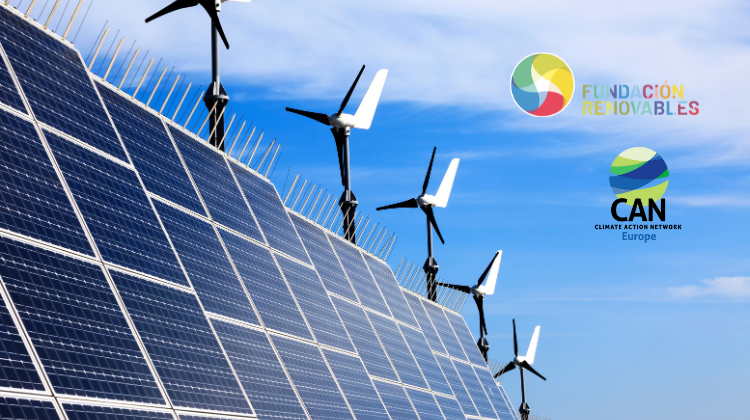A new report co-published by Climate Action Network (CAN) Europe and Fundación Renovables calls for the urgent adoption of binding, harmonised rules across the EU to guarantee fair community participation and equitable benefit sharing in renewable energy projects. As wind and solar installations expand rapidly across Europe, the report warns that top-down approaches are eroding public trust and risking delays.
Titled “Community Participation and Fair Benefit Sharing in Renewable Energy Projects”, the report presents legal analysis, case studies, and policy recommendations based on field research in Spain, France, Germany, Italy and Poland. It shows that while some regions offer positive examples of community ownership, benefit funds, or local investment schemes, these remain isolated and largely voluntary.
A Just Transition Needs More Than Clean Power
The authors stress that the success of the EU’s energy transition will depend not only on how quickly infrastructure is built, but on how fairly communities are treated in the process.
“In too many cases, local residents host energy infrastructure that benefits private investors or national grids, but receive little in return and have no say in the decisions,” said the report. “This undermines local support and can jeopardise the broader transition to renewables.”
KPIs and Minimum Standards: Tools for Equity
To address this gap, the report proposes a set of Key Performance Indicators (KPIs) to assess whether projects fairly involve local communities and share benefits transparently. The authors call on EU policymakers to adopt minimum standards on community participation as part of the permitting and funding criteria for renewable energy developments.
Recommendations include:
-
Requiring early, meaningful community engagement throughout project lifecycles
-
Establishing transparent benefit-sharing mechanisms, such as local investment opportunities or community funds
-
Supporting capacity building for municipalities and civil society actors
-
Creating clear EU-wide definitions and legal obligations on fair participation
Local Power, Local Benefits
The report also highlights that community-led and cooperative renewable energy projects generate up to eight times more local economic value than conventional, investor-driven models. Countries like Denmark, Ireland, and Belgium already offer replicable examples of inclusive project design that could inspire future EU regulation.
Co-authored by CAN Europe, Europe’s largest climate and energy coalition, and Fundación Renovables, a leading Spanish think tank advocating for a democratic and sustainable energy model, the report is a timely call to place social justice at the heart of Europe’s climate agenda.






























